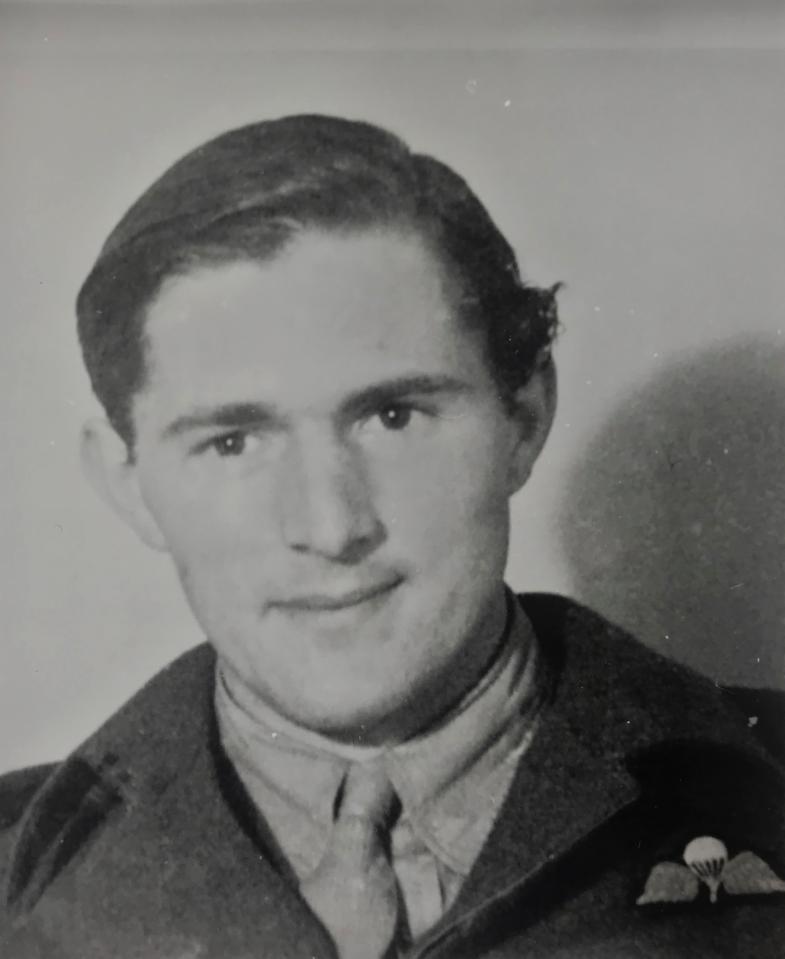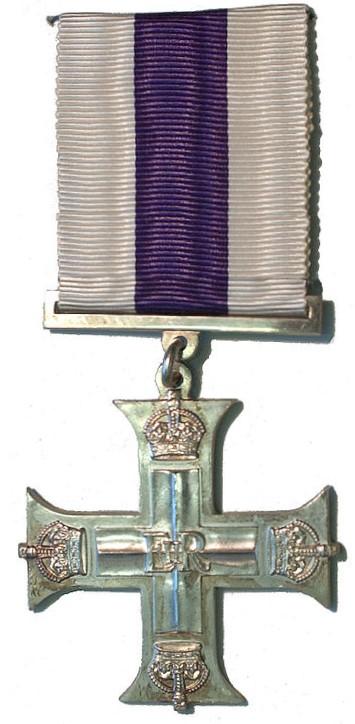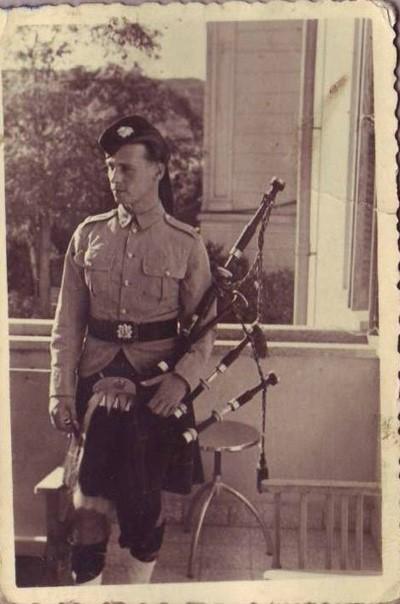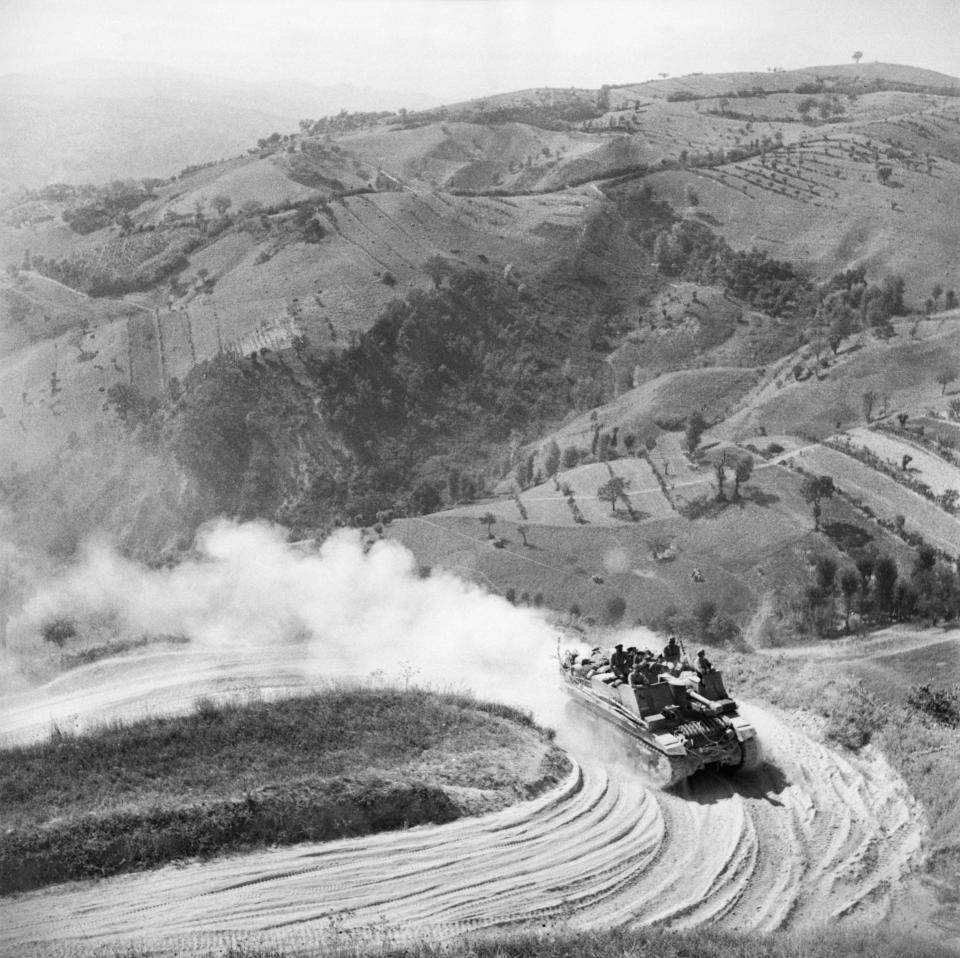Campaign to honour hero who led a daring operation on Nazi HQ that helped end World War Two but was snubbed by top brass
Two British officers disobeyed orders to stage the raid - one was decorated while the other was denied a medal and denounced by top brass
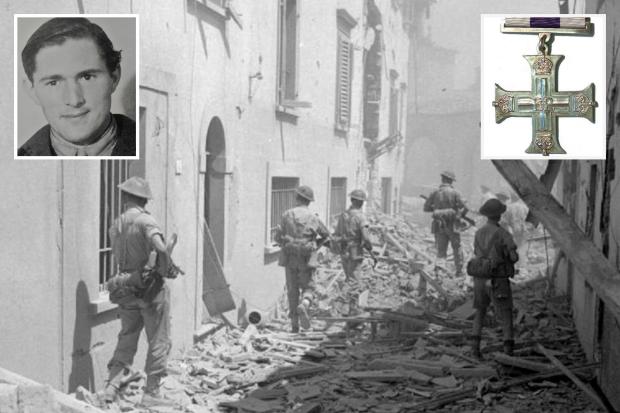
THE name Operation Tombola was apt, because everyone involved knew it was a huge gamble.
In March 1945, just a few months before the end of the Second World War, the odds were stacked against the unlikely team of 100 fighters.
But success would mean smashing through the Nazis' formidable Gothic Line blocking the Allies from Italy.
In the process they might take down enemy commanders including Field Marshal Kesselring, handpicked by Hitler to lead German forces in Italy.
In the event, Major Roy Farran of the SAS and Captain Michael Lees of the Special Operations Executive (SOE) pulled off their mission impossible.
Defying last-minute instructions to call off the attack, they instead went ahead with the daring raid — and broke through the German defences.
Captain Lees, who masterminded the operation, was denied a Military Cross. He had disobeyed orders — it did not matter that his actions probably saved hundreds of lives.
Historian Damien Lewis, whose new book tells the full story of Operation Tombola, is now demanding Lees be posthumously awarded a medal.
He says: “I’ve written loads about World War Two but I’ve never started a petition before. This guy’s story outraged me. This man was a hero.
“He was a maverick, he disobeyed orders — but we recruited mavericks and free thinkers to the SOE because we need them to do the unthinkable and break the rules of war.
“Instead of getting the due reward, his reputation was trounced. It is unfair. It is a betrayal of a great British war hero.”
Lees, who died in 1992, galvanised a motley crew of 100 soldiers including 20 SAS commandos, Italian partisans and other fighters from around the world.
Under his fearless leadership, they stormed a villa in Italy’s Apennine Mountains that was the HQ of Germany’s 14th Army.
The villa was like a fortress, defended by more than 500 German troops armed with MG42 Spandau machine guns.
Lees was known as “Wild Man” after a series of solo sabotage missions in Yugoslavia earlier in the war.
Just 24, he was already a battle-hardened veteran of the SOE, the shady unit for “ungentlemanly warfare” PM Winston Churchill ordered to “set the lands of the enemy ablaze”.
Lees took that command and ran with it, installing himself as de facto leader of a group of partisan fighters in northern Italy.
His unlikely cadre of warriors hailed from all over the globe — Spaniards, escaped Soviet PoWs, former members of the French Foreign Legion, Italian freedom fighters, German defectors and a Dutch soldier who carried a long-handled ice axe.
Damien said: “Lees could scrape together 200 irregular fighters, all speaking a dozen languages.”
Often unkempt and bearded, sporting mismatched uniform, it was the British officer’s job to mobilise them into a force to be reckoned with.
Needing a juicy target, Lees set up a network of spies to gather information on enemy positions.
He enlisted the help of several gorgeous Italian women, who could use their feminine charms to hoodwink the enemy.
Lees nicknamed them his stafettas, meaning messengers.
Through one of them he learned of a secret Nazi base that was a key stronghold in the Gothic Line — miles of machine gun nests, trenches and minefields, bunkers and artillery positions, running from the Mediterranean to the Adriatic.
It was strung together by 74 miles of barbed wire. The harsh winter was setting in and Allied losses were mounting.
The push into Europe was stalling until a foolhardy German officer was a little loose-lipped during pillow talk.
One of Lees’ stafettas returned from their romantic encounter with information about a previously unknown German command centre.
The Nazis had set up a base at Villa Rossi in Botteghe, the HQ of five corps and the 14th Army.
Field Marshal Kesselring was a regular visitor and taking it out would wreak havoc with Nazi communications.
It was an ambitious target — but Lees couldn’t resist.
Needing backup, he called in the SAS. Major Roy Farran was a legend, shackled to a desk job after being deemed too valuable to risk.
As Farran’s team packed their parachutes and prepared to meet Lees behind enemy lines, he insisted on going up in the plane.
When the moment to deploy came, Farran “accidentally” tumbled from the plane. Luckily, he happened to be wearing a parachute.
Damien said: “He told the air crew to report he fell out by accident, so HQ believed him dead. Once he radioed in to ask for airdrops of supplies and weaponry, they realised what he had done. But they couldn’t get him back from behind enemy lines.”
Farran and Lees were kindred sprits who hit it off at once. They started preparing for the assault.
Damien said: “Farran understood the Italian mentality. He had uniforms dropped in, complete with hackles — feathers in Italian colours to wear in their berets. He made them feel part of something much bigger. He made them feel they could pull off this impossible mission and survive.”
He issued the men with shoulder flashes saying “Chi osera vincera” — Italian for “Who dares wins”.
After a 72-hour march, the 100 fighters arrived at the German base, on the night of March 27, 1945.
In a final flourish, Major Farran had “Mad Piper” David Kirkpatrick parachuted in, wearing a kilt.
In the darkness, the stirring sound of Highland Laddie rang out, mixing with the rattle of machine gun fire and the thud of mortar shells.
Damien said: “The Germans had become very brutal in their reprisals against the Italian resistance.
“Bagpipes are quintessentially British — so the Germans had to accept it was a British raid, so they wouldn’t burn Italian villages and kill hundreds in revenge.”
Incredibly, the rag-tag team pulled it off. Fuelled by benzedrine — an amphetamine — they killed around 60 senior German soldiers and burned their base to the ground.
Damien explained: “They took no prisoners. This was not ‘do or die’ — it was murder most brutal.
“Success would shorten the war and save thousands of Allied lives.”
The attack blew a gaping hole in the German line.
Lees was shot five times and was carried to safety on a makeshift stretcher. As his force dashed for the safety of the mountains, hunted by hundreds of German troops, Lees was smuggled through checkpoints in a stolen German ambulance.
The injuries haunted Lees for the rest of his life but Operation Tombola was an unqualified success.
Incredibly, if Lees and Farran had listened to orders from HQ, the attack would never have gone ahead.
The pair had been ordered to call off the assault moments before setting off for Villa Rossi.
British authorities were worried about Communist leanings in the Italian partisans and were reluctant to empower them. Farran and Lees decided to go ahead, risking court martial on their return.
Damien said: “They knew they could never raise the fighters to this level of enthusiasm again.
“Like Nelson, they decided to turn a blind eye.”
After Tombola’s success, Farran avoided court martial and was decorated by the US. But Lees got nothing — though Farran recommended him for the Military Cross.
Damien said: “Lees was languishing in hospital. He was hung out to dry.
“Not only was his Military Cross refused, he was savaged by his peers and accused of insubordination. But he never showed any bitterness.”
With the backing of Lees’ daughter, Christine Bueno, 72, Damien has launched a petition urging Parliament to award Lees the medal he deserved.
MOST READ IN NEWS
Christine, who lives in Blandford, Dorset, said: “My father wasn’t a bitter man but the fact remains, he deserved a medal. He was motivated by one thing, always — to do the right thing.
“I’ve lived with this all my life. I was born a year after Operation Tombola. My family would be thrilled to bits for him to get the medal.
"This is a man history has not recognised. What he achieved unquestionably saved lives.”
- SAS Italian Job, by Damien Lewis, is out now (Quercus, £20).
- To sign the petition, go to and search for “Captain Michael Lees”.
- GOT a story? RING The Sun on 0207 782 4104 or WHATSAPP on 07423720250 or EMAIL [email protected]



